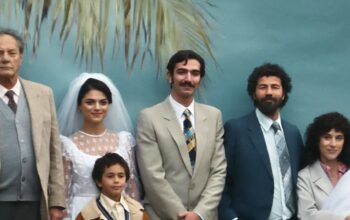Director André Téchiné the guest of honor at Cinemed in Montpellier.
He talks about his concept of cinema. in public lesson with media and cinema lovers.
answering question about his first memory of cinema. he said :
No precise memory. As a child, I went to the cinema every Sunday and twice a week during the holidays.
I was internal. I saw the movies without distinction.
It was a permanent enchantment, no doubt because the cinema was the only form of escape I had found. I escaped from my environment, from my family, from the rather military discipline of the school.
The cinema was then neither cultural nor normative. I did not differentiate between a good and a bad movie. I swallowed everything without any aesthetic discernment.
Téchiné continued :
during adolescence by reading magazines like Cahiers du Cinéma. I began to see that some films were more interesting than others, with a scale of aesthetic value.
I then had the desire, and even the passion, to build a bridge with this cinematographic culture that I did not know: the great classics or the great moderns of the time like Bergman or Antonioni.
It was to understand how the magic of cinema was organized.
and when the audience asked him about a particular movie has marked him ??
he said : Yes, and paradoxically because this film had disappointed me: Justice is made of Cayatte in 1950.
I did not like this closed place, stuffy. Maybe because it reminded me of the life I was living at the time.
Subsequently, I made a rejection on the trial films.
Much later, when I realized The Man Who Loved Too Much, according to the Le Roux / Agnelet case in Nice, I had a conflict with the producer who wanted a trial sequence.
I put it in the very last part of the film but I did not manage well. She was pompous, demonstrative. I would have done better to remove it.









